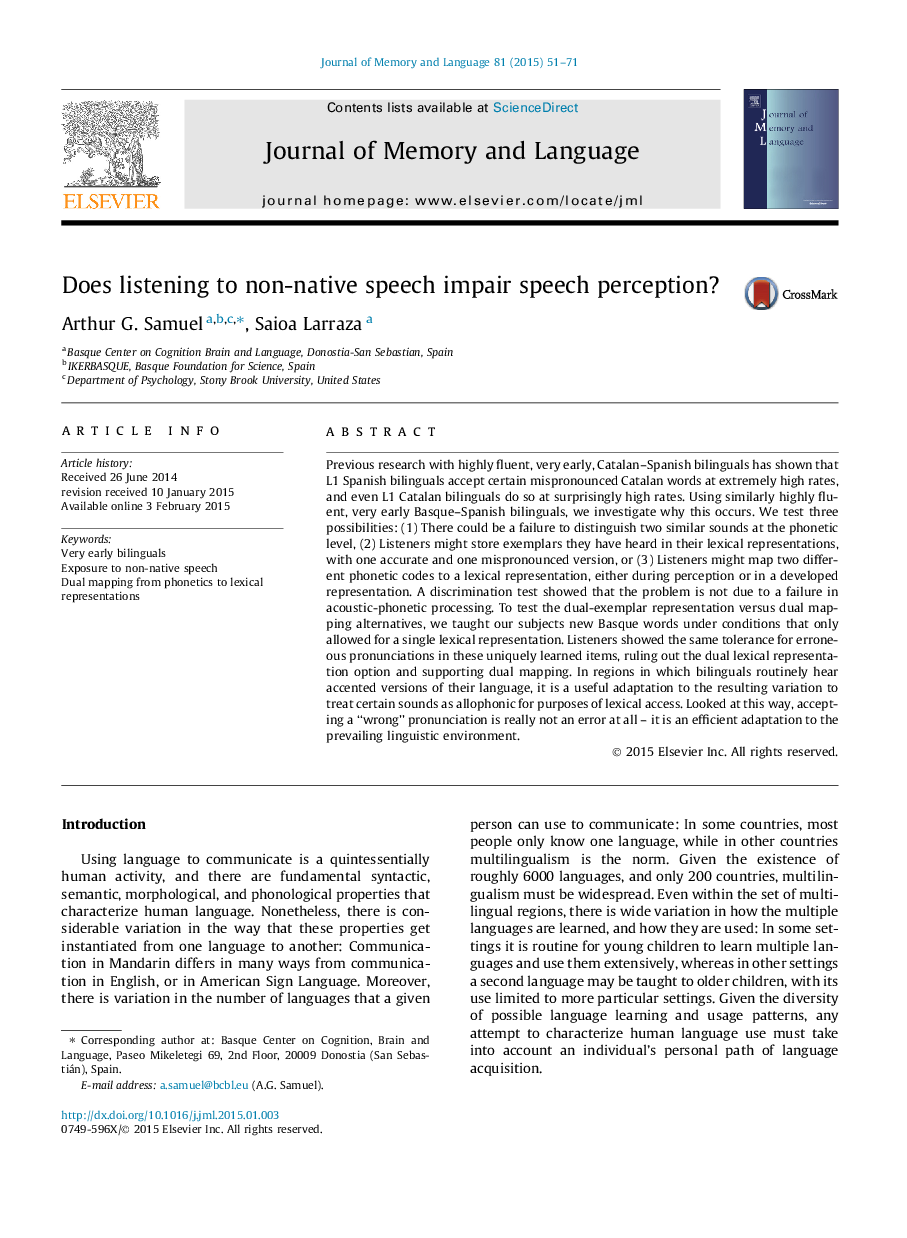| کد مقاله | کد نشریه | سال انتشار | مقاله انگلیسی | نسخه تمام متن |
|---|---|---|---|---|
| 931798 | 1474638 | 2015 | 21 صفحه PDF | دانلود رایگان |
• Highly proficient bilinguals sometimes accept mispronounced words.
• Bilinguals might store both correct and incorrect versions of words they have heard.
• We taught bilinguals new Basque “words” under conditions without incorrect input.
• Listeners accepted mispronounced words, even with no incorrect prior exposure.
• Accepting mispronounced words can be adaptive in a bilingual environment.
Previous research with highly fluent, very early, Catalan–Spanish bilinguals has shown that L1 Spanish bilinguals accept certain mispronounced Catalan words at extremely high rates, and even L1 Catalan bilinguals do so at surprisingly high rates. Using similarly highly fluent, very early Basque–Spanish bilinguals, we investigate why this occurs. We test three possibilities: (1) There could be a failure to distinguish two similar sounds at the phonetic level, (2) Listeners might store exemplars they have heard in their lexical representations, with one accurate and one mispronounced version, or (3) Listeners might map two different phonetic codes to a lexical representation, either during perception or in a developed representation. A discrimination test showed that the problem is not due to a failure in acoustic-phonetic processing. To test the dual-exemplar representation versus dual mapping alternatives, we taught our subjects new Basque words under conditions that only allowed for a single lexical representation. Listeners showed the same tolerance for erroneous pronunciations in these uniquely learned items, ruling out the dual lexical representation option and supporting dual mapping. In regions in which bilinguals routinely hear accented versions of their language, it is a useful adaptation to the resulting variation to treat certain sounds as allophonic for purposes of lexical access. Looked at this way, accepting a “wrong” pronunciation is really not an error at all – it is an efficient adaptation to the prevailing linguistic environment.
Journal: Journal of Memory and Language - Volume 81, May 2015, Pages 51–71
